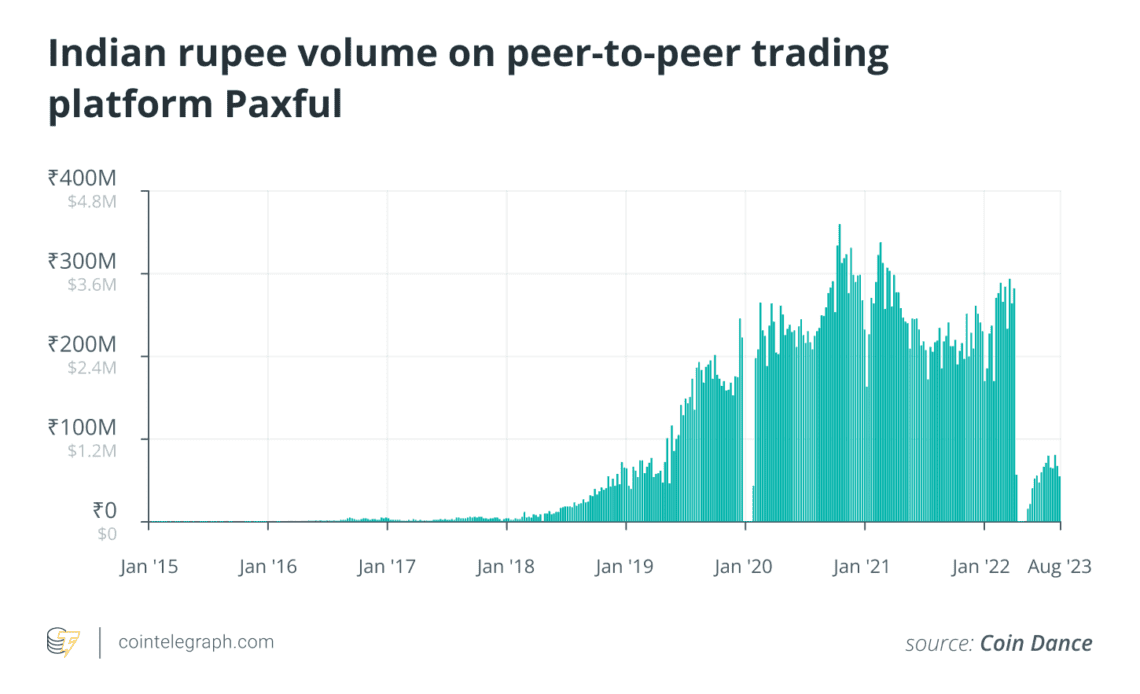Peer-to-peer (P2P) cryptocurrency trading has been a staple of the cryptocurrency community since the industry’s early days.
P2P trading refers to the direct exchange of cryptocurrencies between two users without the involvement of intermediaries. P2P exchanges link buyers and sellers while also adding an extra degree of security through an escrow service. Some of the key advantages of P2P over centralized exchanges include global accessibility, a variety of payment alternatives and no transaction fees.
Furthermore, P2P marketplaces have become crucial for crypto traders and enthusiasts in jurisdictions where governments are hostile to formal cryptocurrency exchanges and service providers.
In India, they became a lifeline for many crypto traders when the country’s central bank issued a banking ban on cryptocurrency businesses in April 2018.
Although the banking ban was eventually lifted by the Supreme Court in March 2020, P2P platforms continue to play a crucial role as banks remain sceptical about offering services to crypto exchanges due to a lack of regulatory clarity.
During the bull market in 2021–2022, India saw a significant surge in crypto trading volumes and crypto platforms, prompting the government to take notice of the nascent ecosystem.
Recent: PayPal’s new PYUSD stablecoin faces legal headwinds and ‘less functionality’
While industry leaders demanded a comprehensive regulatory framework, which has been under development since 2019, the Indian finance minister announced a 30% tax on crypto profits in 2022.
The heavy tax, in addition to the continuing lack of regulatory clarity, has been the bane of the budding Indian crypto ecosystem, deterring Indian investors away from the market.
While mainstream crypto exchanges struggled, P2P platforms saw their volumes skyrocket.
How P2P scams happen
This rise in P2P trading volume also led to significant uptick in P2P scams. These scams often use stolen banking data or lure customers with fake promises of high profits and then use their banking information to scam P2P users.
Earlier in July, two people were arrested in the Indian city of Ujjain in connection with a Binance P2P scandal. The police recovered several fake bank accounts, ATM cards and documents from the accused, who were allegedly buying fake IDs and personal data for 1,500 Indian rupees ($18) in order to scam users of Binance P2P.
Two Accused In Binance P2P Scam Arrested In Ujjain, India
Two accused of scamming people on
Click Here to Read the Full Original Article at Cointelegraph.com News…
























